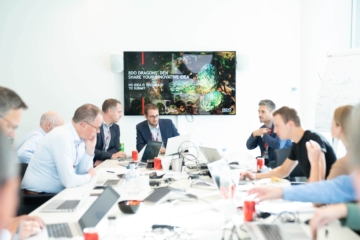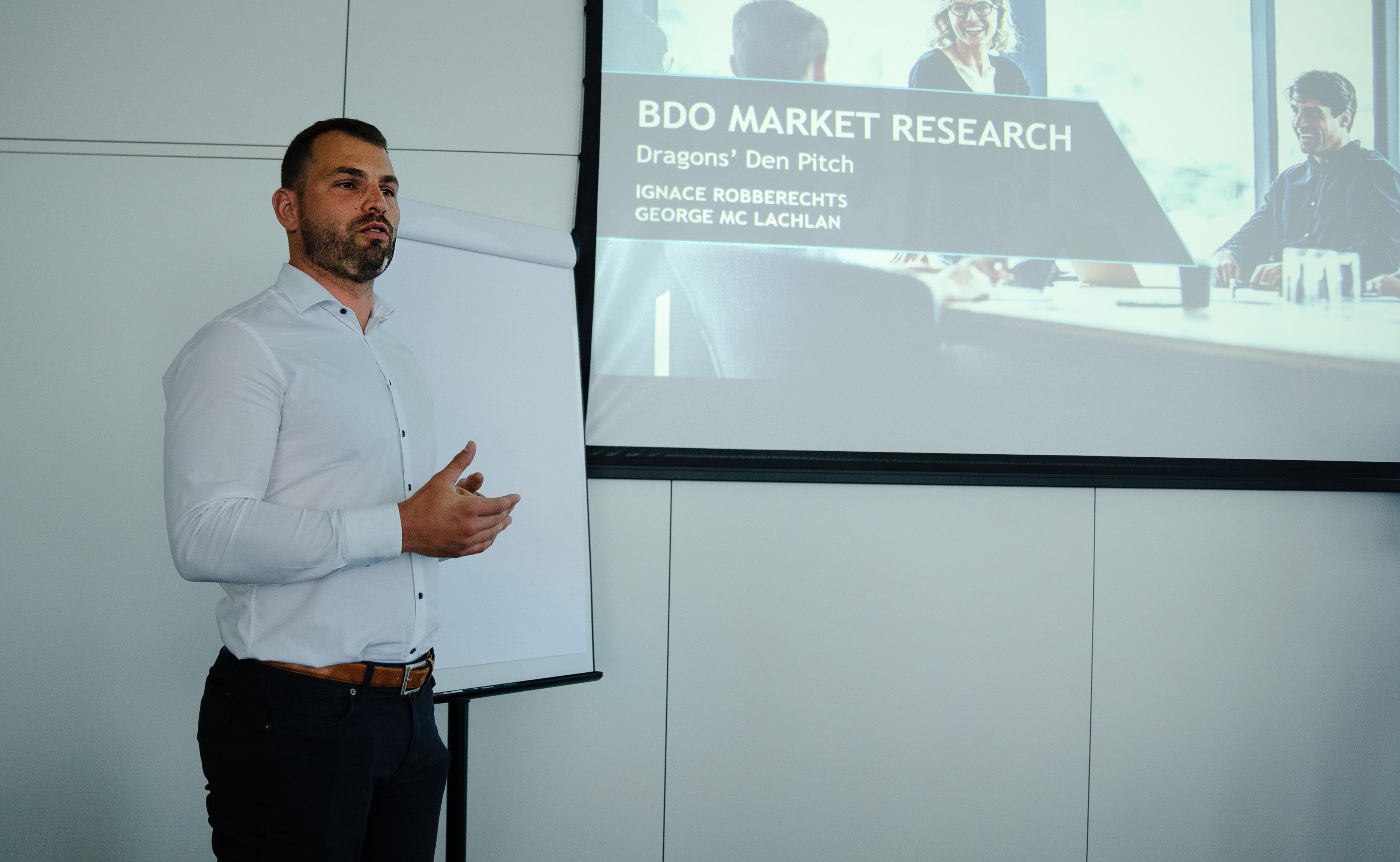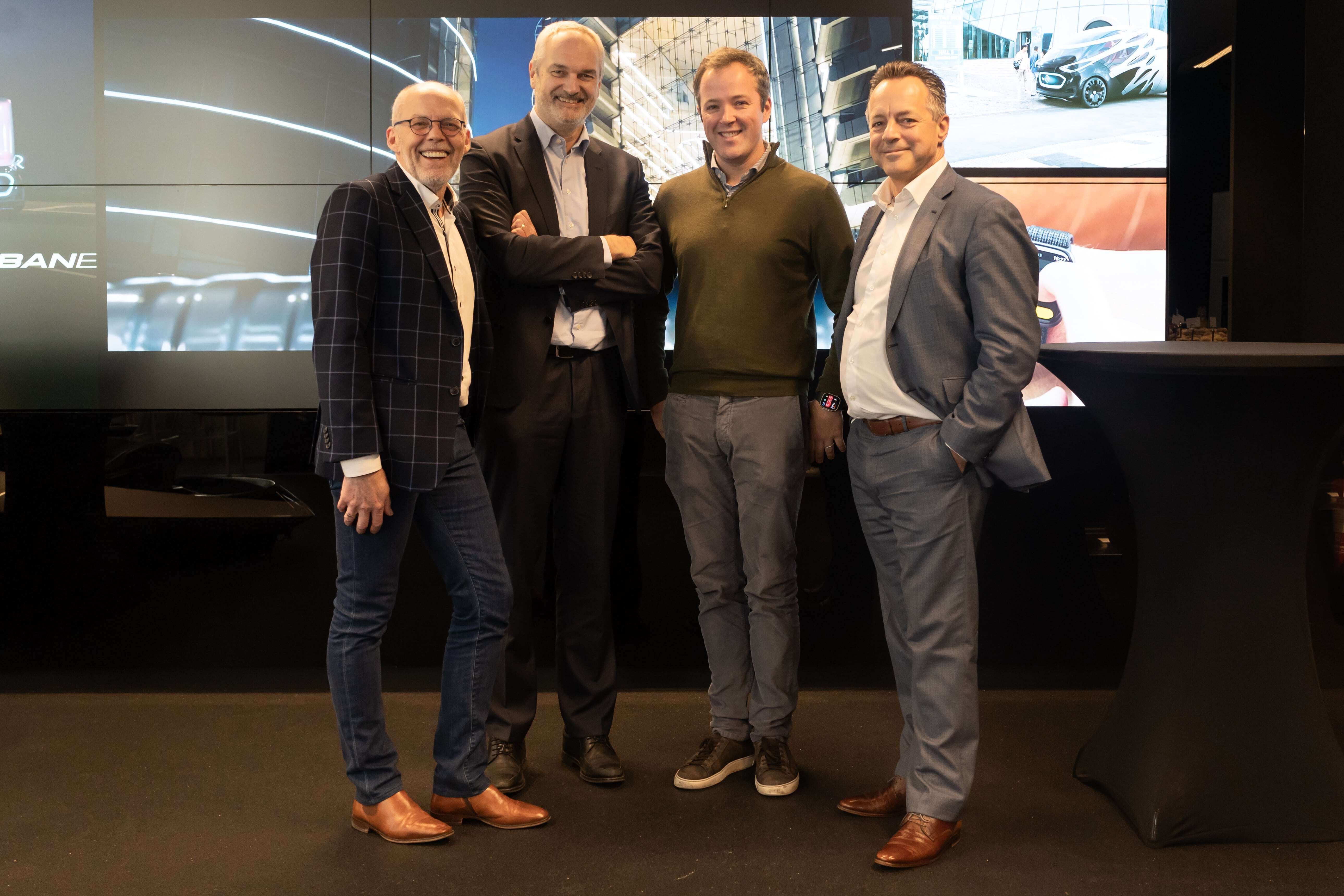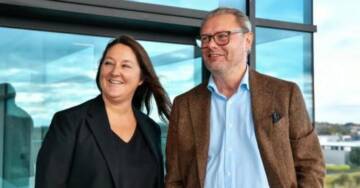Dragons’ Den gives BDO Belgium wings

Many companies and organisations lack a genuine innovation culture. With Dragons’ Den, BDO Belgium is not falling into this trap, as witnessed by this new internal innovation trajectory.
Many companies and organisations lack a genuine innovation culture. With Dragons’ Den, BDO Belgium is not falling into this trap, as witnessed by this new internal innovation trajectory.
Employees have little time or freedom to think creatively, budgets are limited and support among the management and the team is often small. In short, many companies and organisations lack a genuine innovation culture. With Dragons’ Den, BDO Belgium is not falling into this trap, as witnessed by this new internal innovation trajectory.
The name Dragons’ Den is a reference to the British series of entrepreneurs of the same name and the Flemish television programme ‘Leeuwenkuil’, where up-and-coming entrepreneurial talents pitch their business idea before seasoned top entrepreneurs looking for a golden idea. So, now we know where Patrick Kestens got the inspiration. He is the former inspirational force behind the Corda INCubator, a breeding ground for innovative start-ups and scale-ups. For the last year or so, as innovation & intrapreneurship manager, together with Hennie Herijgers, partner and innovative power at BDO Belgium, he has been the driving force behind the project to stimulate, support and develop BDO's innovation capacity and internal entrepreneurship.
More important than value and the success of the idea is the spirit of innovation we want to cultivate.
Space and support for creativity
The Dragons’ Den concept is brilliant in its simplicity: create an environment in which employees can - and want to! - let their creativity run wild and present their innovation ideas without inhibitions. Each idea is tested by an independent innovation board in terms of feasibility and potential to create value. For BDO and for customers, directly or indirectly. “Every one of our nearly 1,000 employees has the opportunity to pitch an idea,” says Patrick Kestens. “There is only one condition: if you decide to join in, you have to commit yourself to the project. On the other hand, depending on the phase in which the idea grows and becomes more concrete, they also get a budget and the time to put it into practice. Knowing that nobody – and this is extremely important – is being judged on the evaluation by the innovation board.”
Stopping is a possibility, failure does not exist. Car maker Henry Ford was once fined because his first car made too much noise. Imagine that would have stopped him! Drawbacks are just a part of innovation and entrepreneurship. More important than the value and success of an idea is the spirit of innovation that BDO aims to cultivate.
Successful innovation only succeeds with the right culture. A culture that is open to creativity in an atmosphere of trust. The direct result – the innovation in itself – is important, but the underlying effects are at least as valuable. “Innovation also gives energy,” says Hennie Herijgers from experience. “It makes you look at things differently as an organisation, you are taking off the blinders. Anyone who never changes anything about a product, service or process risks being duped.” At the same time, stimulating and using talent increases employee involvement, reduces turnover and has a positive effect on job satisfaction, enthusiasm and well-being. This will also ultimately benefit the employer branding.

There is only one condition: if you decide to join in, you have to commit yourself to the project.
Never-ending innovation model
An innovation round of Dragons’ Den has six phases and the same number of gates (from idea to review and pitch to development, evaluation and finalisation). Anyone who has an innovative idea and wants to develop it must defend their idea before a jury. If you win the trust of this innovation board, the employee will have the time, space and resources to develop their idea into a prototype one day a week and possibly even commercialise it.
To look beyond its own (unconscious) borders, BDO involves two external innovation advisers on the jury, the tech entrepreneurs Jürgen Ingels and Louis Jonckheere. They assess the ‘potential’ of the projects as seasoned entrepreneurs and with an outside view. The innovation board with external entrepreneurs forms a sounding board and provides advice per phase in the process. Things do not stop after the first round of the innovation programme. On the contrary. Another Dragons’ Den is already in the works. The idea is to keep the desire alive and thus achieve a continuous flow of innovation.
Innovation is clearly not a one-off project, but a never-ending innovation model that grows organically, regulates and learns itself and will eventually become part of the BDO DNA. In other words, Dragons’ Den will eventually make itself superfluous and merge with the organisation as a natural and self-evident part of the way everyone works and grows at BDO.

Latest insights & stories

AI will represent 10% of global IT spending by 2028: here's where to invest
As AI accelerates towards becoming 10% of global IT spending by 2028, the challenge lies in choosing the right areas for investment. Explore our insights on how to direct your AI budget towards high-impact, scalable projects that generate measurable business value. Unlock the strategies to turn potential into performance.

New wave flume at Hydraulic Laboratory opens doors for innovative coastal safety and climate impact research
The Hydraulic Engineering Laboratory (WL) of the Department of Mobility and Public Works (MOW) unveiled its new, larger, and modern wave flume. This research facility is designed to simulate complex wave and water movements in a controlled environment. The festive inauguration took place at the WL headquarters on Berchemlei in Antwerp. The new wave flume was built with the support of the Program for Innovative Public Procurement (PIO) and the Flemish Agency for Maritime Services and Coast (MDK).

Article in Trends: this smart innovation makes the construction sector future-proof
Laurence Gacoin, CEO of C-enery and C-innovation, discusses in an interview with Trends the innovations that the Cordeel Group is working on. Read the full article below.